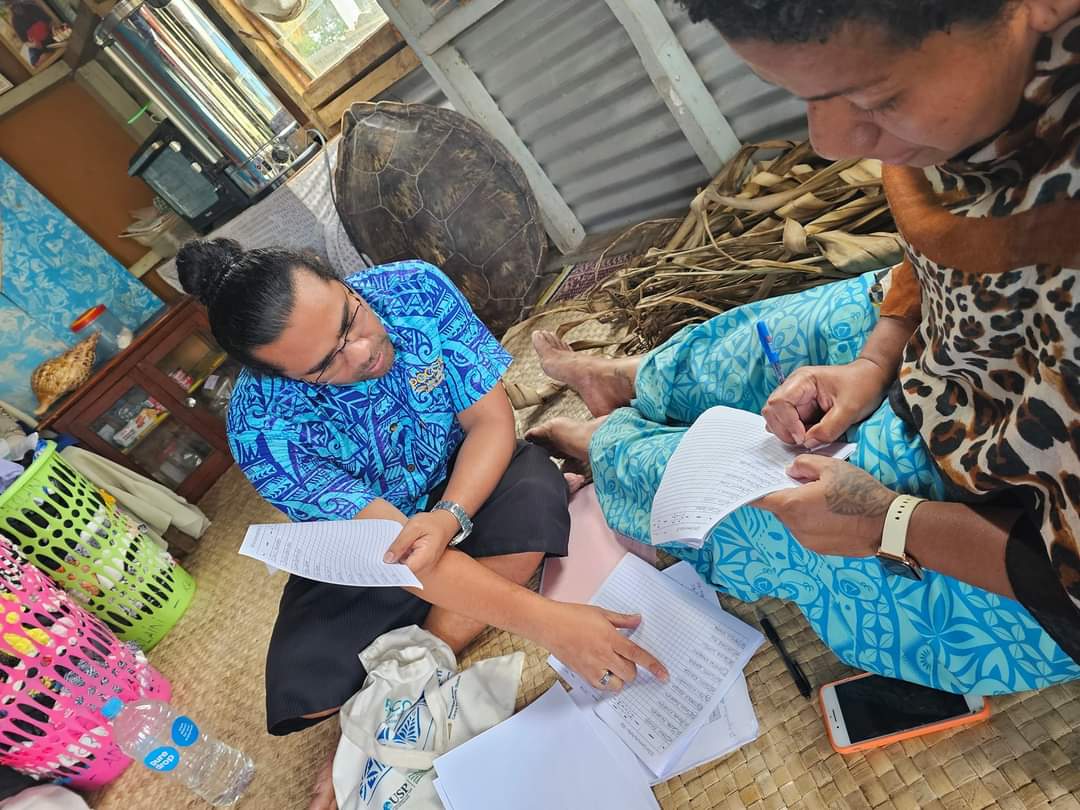Related News

In the Pacific, noncommunicable diseases (NCDs), such as cardiovascular diseases, diabetes, cancer, and chronic respiratory diseases, constitute the leading cause of premature mortality, accounting for approximately 75% of all deaths in the Pacific.
This situation has created a ‘human, social, and economic crisis’ and poses a significant obstacle to the healthy island vision and the achievement of sustainable development goals.
A noteworthy initiative is currently underway under the banner of the Global Health Research on Community Food for Human Nutrition and Planetary Health in Small Islands (Global CFAH). This interdisciplinary research project involves four countries: Fiji, the Philippines, Dominica, and St. Lucia.
As part of this initiative, The University of the South Pacific has secured funding from the National Institute for Health Research in the United Kingdom (UK) for the GCFAH project, which will be conducted through the Pacific Centre for Environment and Sustainable Development (PaCE-SD).
The research aims to answer the question, “What is the potential for improving household diet, nutrition, and food security, as well as reducing the burden of nutrition-related diseases, by promoting increased community-based food production (CFP)?”
Given the high incidence of NCDs in the Pacific, particularly in Fiji, last week, the PaCE-SD research team visited 16 villages across three provinces to strengthen the commitment to these communities through the project.
Recognising the importance of enhancing household diet, nutrition, and food security, the project aims to design a work program that will allow for a robust evaluation and comparison of community-based food production initiatives in the Caribbean and the Pacific. This will be done from the perspective of their impacts on NCD risk, social and economic well-being, and the environment.
Mr. Filipe Veisa, GCFAH Research Fellow, emphasized the importance of such a project in the region, saying, “In Fiji, our heavy reliance on food imports has placed an increasing burden on our healthcare system.”
He added, “In Fiji, through PaCE-SD, in collaboration with FRIEND, will oversee the projects, with the targeted communities being in the provinces of Rewa, Tailevu, and Naitasiri.”
The purpose of the visit was to ensure and reinforce the sequence of events that will occur throughout the duration of the project with the participating villages.
In close consultation with the village leaders and nurses, information on village profiles, including household participants and food production, was also collected.
Meanwhile, a team from USP and the National Institute for Health and Care Research (NIHR) Global Health Research Group on Community Food for Human Nutrition and Planetary Health in Small Islands (GCFaH) recently visited Nacula Island in Yasawa to engage and talk with community members as well as presented preliminary findings based on data collection which was carried out late last year through a related project, Intervention, Co-creation to Improve Community-based Food Production and Household Nutrition (ICoFaN).
Using a variety of methods, the ICoFaN project assessed the impact of food security interventions on household nutrition and expenditure.
Mr. Manasa Naikasowalu, the Turaga Ni Mataqali of Yavusa Nacula in Yasawa, told the GCFaH team, “I’m glad this program came to us. Particularly significant is the collaborations with USP and FRIEND regarding the planting of our root crops and food preservation.”
He added, “With today’s lifestyle, we’ve lost a lot of what we consider young people. Particularly young people aged 20-30 and 30-50. I consider myself fortunate to have reached the age of 61 and to be a part of this project about food security and making use of what is available to us.”
Mr Naikasowalu, who turned 62 last year, fell ill during the festive season and had only recently fully recovered, but it reminded him of the importance of maintaining a healthy diet.
Dr Maddy Murphy, a Senior Lecturer in Qualitative Research at the University of the West Indies, was also part of the GCFaH team that visited Nacula in Yasawa.
Dr Murphy emphasised the importance of talking with farmers and community members to understand what’s going on and what factors are influencing their ability to grow and produce food in a healthy, nutritious, and diverse manner.
“Trying to understand the different perspectives, but importantly having visited Nacula and also seeing what the community was doing was an eye-opener for us,” Dr. Murphy said.
“It’s one thing to be on zoom calls halfway across the world and hear what’s happening, but it’s another thing to be on the ground and actually see for ourselves.”
The project aims to understand the potential for improving household diet, nutrition, and food security while reducing the burden of nutrition-related diseases.
This will be achieved by promoting increased community-based food production based on agroecological principles in small island countries and providing evidence to support sustainable food production and improved human nutrition.
The Global CFaH project is a four-year initiative funded by the National Institute for Health Research, UK, with USP, Pacific Centre for Environment and Sustainable Development (PaCE-SD), and FRIEND as partners based in Fiji.